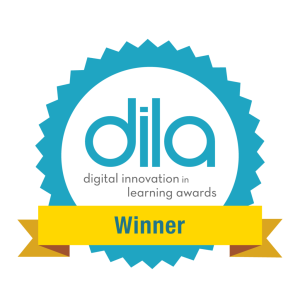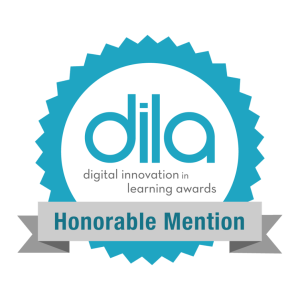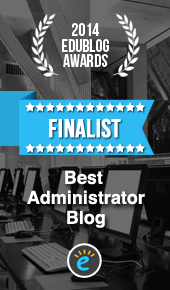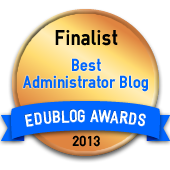Monthly Archives: July 2014
Empowered Learning: Transforming the PD Paradigm
Power Plant PD

Image Credit: http://www.providenceri.com
I’m currently immersed in a doctoral study involving some of the most innovative and effective school leaders in the country. My research is focused on the Professional Development (PD) experiences of elementary principals in a digital age. The process of reviewing hundreds of peer-reviewed research articles and talking to countless practitioners in the field of education has been a deeply reflective exercise. I’ve been convicted of some of my own personal PD leadership failures, and I’m also gaining clarity on what I believe we need to do to create conditions in which teachers are supported in their learning.
We’ve been conditioned to believe that attending a dynamic presentation or well-organized workshop is the gold standard for PD. The traditional PD paradigm espouses that an “expert” in the field can share information about a topic with an audience, and that this transmission of knowledge will increase an audience’s capacity, motivation, etc. We’ve relied on this “Power Plant” approach to PD for several decades. This type of PD may recharge our batteries for a period of time, but it is unlikely to cultivate an educator’s long-term ownership of his/her learning.
“Power Plant PD” may have represented best-practice and sound pedagogy in the past. However, it’s the same approach we are asking our classroom teachers to migrate away from. We want students authentically engaged in relevant learning that includes opportunities to hone 21st century skills like communication, collaboration, creativity, and critical thinking. To usher in a new learning paradigm the predominant voice in the room must include our students’ voices. Why would principals and PD planners hold themselves to a lesser standard?
Empowered Learning
The most powerful PD comes when the learner is empowered…not the presenter. Teachers who are empowered are conduits for high-voltage learning. They possess an authentic yearning and fervor for growth that cannot be completely satisfied through traditional presentations.
If we are to foster an ethos in education in which staff learning is truly revered our teachers will no longer be treated like batteries needing a quick recharge. Teachers will be honored as the true “sparks” in our schools and connected with other educators across the globe. A powerful connected-pedagogy will emerge that supports teachers in securing the time and skills needed to collaborate.
In order effectively leverage the student-centric connections made possible by technology including social media, it’s critical that we are engaged in our own digital age learning. Each of us is a digital leader…the only question that remains is, “How effective and relevant are we in this role?” I’d encourage you to check out the Digital Leadership Challenge blog post and sign-up to participate in the personalized mini-challenges using the Google Drive link embedded within. If we don’t walk-the-walk and own our learning how can we expect anyone else to?
Finally, here are four additional PD questions I’m encouraging educational leaders to reflect upon. I’ll be holding myself accountable to the same four questions and encourage you to check back with me. I can’t think of anything more important than empowering the true “sparks” that are working with our students every day. Transforming the PD paradigm is paramount to supporting student learning in the digital age. We need to rethink the very definition of Professional Development; PD can be a conversation, EdChat on Twitter, written reflection on a blog, flipped faculty meeting followed by purposeful face-to-face time, or an asynchronous dialogue via Voxer. We must empower our people!
4 Questions
1.) If the PD and/or staff meetings you plan were optional would your staff still show up?
2.) How might we more effectively model current-best practices in PD; the same practices we’d expect our students to benefit from in the classroom?
3.) Is the topic of failure regularly discussed and modeled? Do staff understand the explicit value of failure in the learning/growth process?
4.) How are we leveraging technology and social media as tools for personalized learning? How are we supporting staff on this journey?
Together We’re Better for Kids

I rely on my PLN to share innovative ideas about pedagogy and opportunities for students. I took this photograph of a MakerBot while attending ISTE 2014.
Being connected on Twitter, Voxer, etc. has been a powerful supplement to the relationships I cherish with the dedicated teachers in our school. In fact, the connections we’re cultivating that started out on Twitter have had a direct impact on our students.
Our school has had a core group of teachers collaborating the past year on 21st century learning spaces to promote student engagement, creativity, and innovation. Staff have conducted site visits at other schools and met after school to collaborate on a regular basis. Their work has been inspiring, and I could go on for days about how phenomenal our team is.
As part of our conversations we have discussed bringing a MakerSpace to our school. The purpose of these conversations and a potential MakerSpace has been centered on cultivating an ethos of student learning made possible through passion-based learning, experimentation, creation, risk-taking, failure, and design iteration. I learned about the MakerSpace concept via my Personal Learning Network (PLN).
My connections on Twitter equipped me with additional research on MakerSpaces and 3D printers to contribute to the conversations. Drew Minock, a friend in my PLN that I met via Twitter, took time to explain how he wrote a DonorsChoose.org grant for a 3D printer in his classroom. We spoke a couple times via the telephone until I was ready to work with teachers interested in writing a grant in our school. We submitted a grant and our project is now fully-funded! Members of my PLN helped spread the word and retweeted project information. We even had several people that I only know through Twitter donate to our students. The process has been humbling!
Twitter has been a game-changing tool that empowers educators to forge supportive, student-centered relationships with one another from anywhere on the planet. Twitter was the primary tool I used to connect to research about MakerSpaces and 3D printers. Twitter was how I learned about DonorsChoose.org. Twitter connected me to caring parents and educators across the country that also wanted to support students and our 3D printer project. However, this story isn’t really about Twitter; it’s about what some of these connections will mean for our students. When school starts this fall, our students will have an unbelievable opportunity to innovate using cutting-edge technology.
Together we are better for kids, and our students are the ultimate winners when educators collaborate within and across classrooms, schools, and states! Our MakerSpace project would not have been possible without an AMAZING team of educators at Greenwood Elementary…and the positive power of PLN.
NEW Podcast: #30SecondTake
Podcast Format
Each week we’ll feature two guest hosts that participate in a digital duel. The podcast focuses on pedagogy, innovation, and educational technology. Our purpose is to engage practitioners in a FUN and interactive experience comprised of dialogue and reflection around a single guiding question. The show is uptempo and fast-paced. If you blink you just might miss it, but that’s by design. Here’s why…
Creativity is often cultivated by constraints. The time restrictions of the podcast require succinct communication, and participants will certainly need to be creative to share their “take” in 30 seconds or less. After all, if you can’t explain something to somebody in 30 seconds or less you may not understand the issue as well as you think!
Viewers are asked to vote for the most compelling response each week, and add any comments/questions on Twitter using the hashtag #30SecondTake.
Voting
The best part about the podcast is that viewers have a voice in who will host the following week. After watching the podcast you can vote on Twitter via the #30SecondTake hashtag. The guest host that receives the most votes will remain on the show to defend the title the following week. Your comments and questions are also appreciated and will serve as a catalyst for deeper reflection for us all.
Guest Host Info.
Hosts are asked to film their “30 Second Take” in front of a green-screen (could be green construction paper, green fabric, green paint, etc.) in a well lit room without background shadows. I will communicate the show topic (guiding question) a few days in advance. Be sure to speak loudly and do not exceed 30 seconds when sharing your “take.” Please send a close-up photograph of yourself as well. Guest hosts can submit their 30 second video “takes” and photographs via e-mail or DropBox at brad.gustafson@wayzata.k12.mn.us Guest hosts will receive a digital badge for display on their blogs or personal websites.
Episode I
Guiding Question: What is the Role of Technology in Education
@611Spartan received 63% of the votes
@GustafsonBrad received 22% of the votes
Viewers voted “tie” with 12% of the votes
The Robot received 2% of the votes
Top Tweets on #30SecondTake
(DM me your school address & I’ll mail a TouchCast stylus/pen and card.)
https://twitter.com/Kevreadenn/status/488121530459504640

















